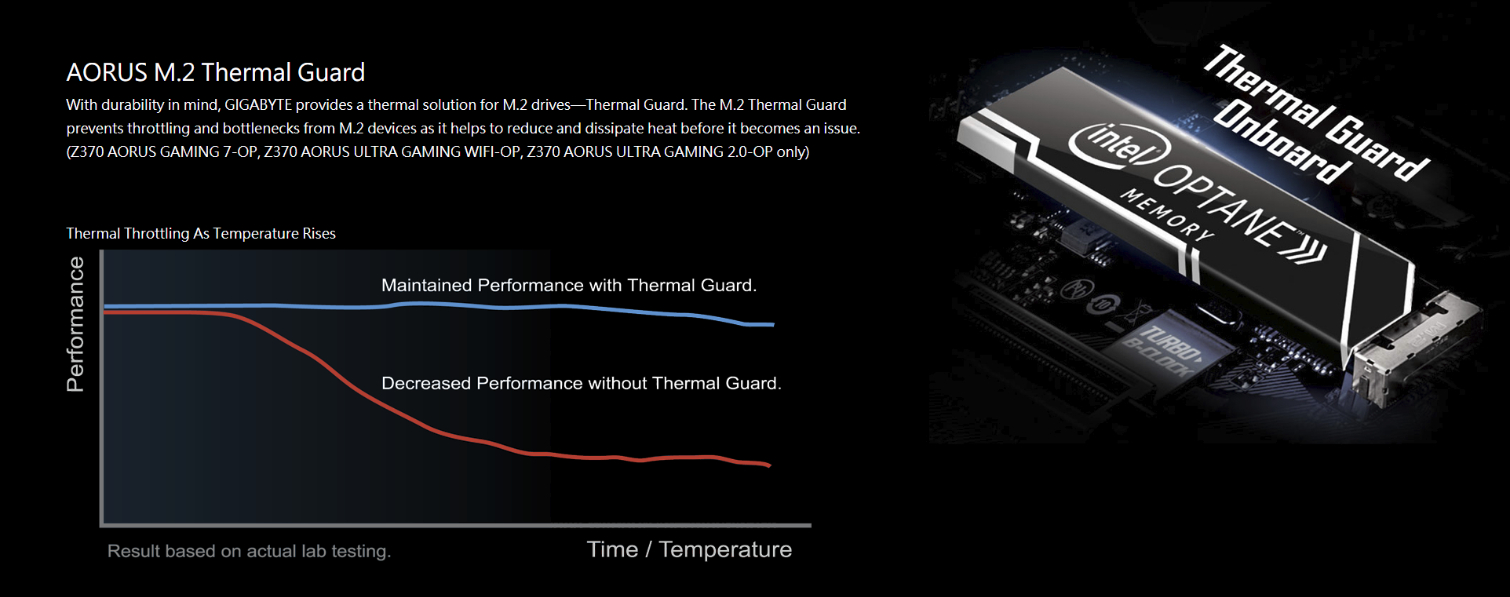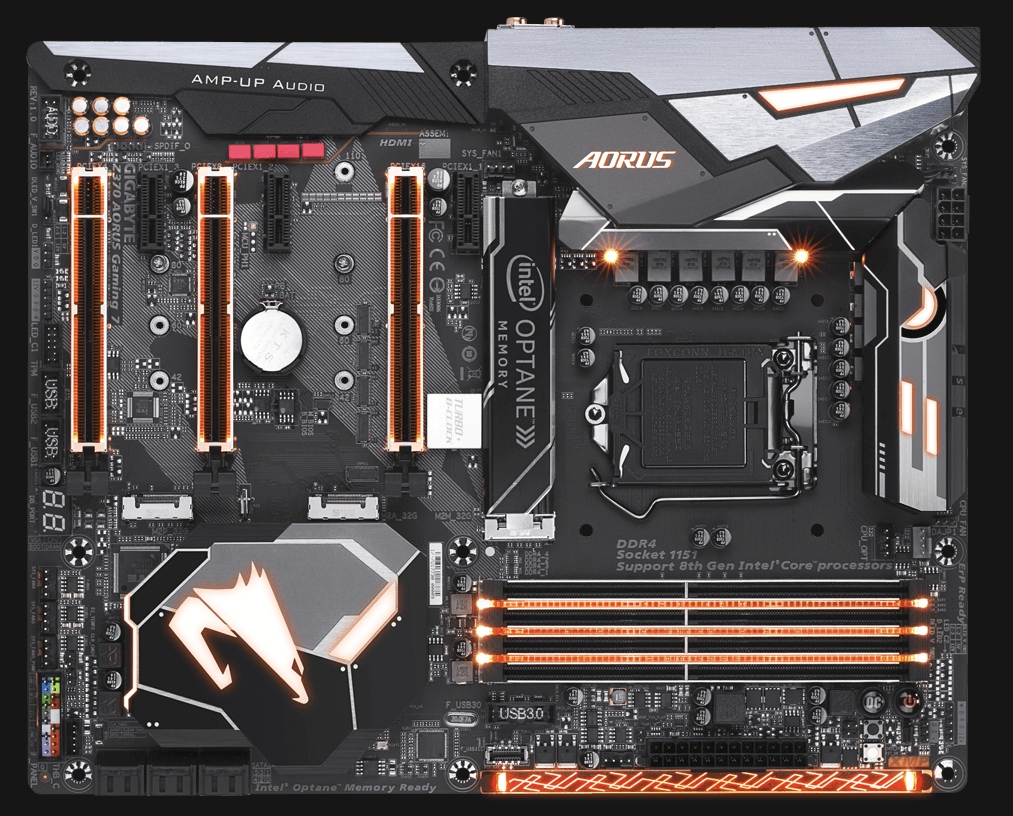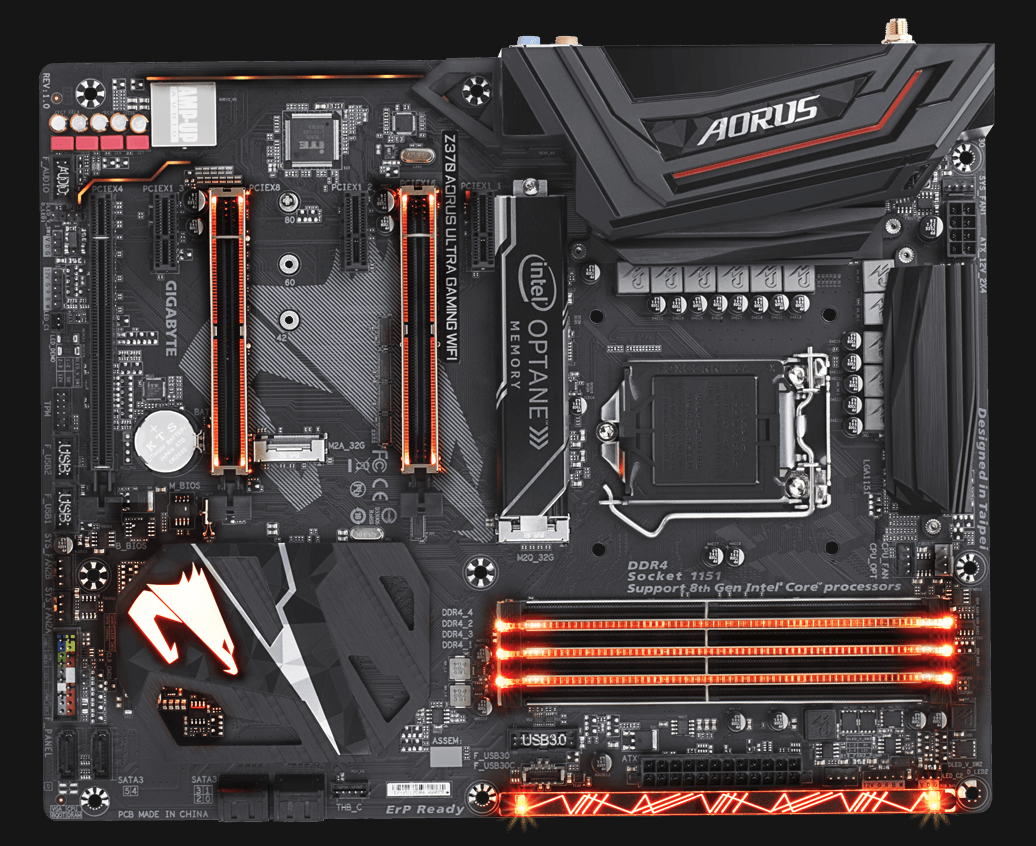Gigabyte Bundles Optane Memory With Two Aorus Motherboards
Gigabyte has added two new motherboards with the "OP" modifier to its arsenal. These new SKUs come with a pre-installed 32GB Intel Optane memory module and a special heatsink with Intel Optane branding, but aside from those changes, these motherboards come with the same features and functions as their standard counterparts. The Optane modules come installed in a standard M.2 port.
Intel already sells its new Core+ processors with 16GB Optane memory drives in the box, but the company has obviously missed the point of bundling products together: Intel's bundle pricing is higher than the processor's MSRP and the increase is roughly equivalent to the price of a 16GB Optane module.
Lucky for us, Gigabyte doesn't make the same mistake. The Z370 Aorus Gaming 7-OP comes with an MSRP of $269, which is a $20 premium over the standard Gaming 7 model's $249 MSRP, but the Optane-equipped model is currently on sale for $249.99.
Newegg has the AORUS Gaming 7-OP on sale for the next six days, so you essentially score a ~$70 Optane memory module for free. After the sale ends, you still get the memory module for only $20 more, which is a solid deal.
Gigabyte also offers the Z370 AORUS Ultra Gaming WIFI-OP with a $214 MSRP, while its non-Optane-equipped counterpart is on sale for $164.99 (it usually retails for $179.99). That means you pay an extra $34 for the 32GB Optane Memory module, which normally retails for ~$70.
That's a pretty solid deal for 32GB of Optane that works with Intel's software to boost performance in a wide range of games and applications. Intel now also supports using Optane caching with a secondary storage volume. That means you can store your Stream library on your secondary HDD and still experience SSD-like load times.
Get Tom's Hardware's best news and in-depth reviews, straight to your inbox.

Paul Alcorn is the Editor-in-Chief for Tom's Hardware US. He also writes news and reviews on CPUs, storage, and enterprise hardware.
-
shiitaki Optane memory would have been great 5 years ago, but it's a solution to no one's problem other than Intel needing to sell something so that they can use the consumer space to pay for the sunk costs of a failed technology.Reply
With mainstream SSD's over 3GB/s there just isn't any excuse for a 32GB module with half the speed?! Too small, too slow, go home and stop embarrassing yourself Intel. Put it in the museum of other intel failures, like next to those graphics were talking trash about. -
Sleepy_Hollowed The only application where Optane is something you’d like on PC is anyone that does video or photo editing in order to not destroy your SSD each time you do changes to the file amd have to use disk cache.Reply
But like the previous poster said, there are solutions to that, like RAM caching the SSDs which crucial and Samsung already implemented in their SSD software.
Perhaps on a 128GB size for the operating system so that it’s always “loaded”, but still, it would be easier to just use a smaller SSD which is universal on its platform.
I still fail to see any need for home or pro users outside of specialized database labs. -
almarcy Ah, some critics miss the glory. 32G of possibly usable storage on a MB? Cool beans get counted, but, I started this trek to world wide web code drone warfare on a PDP-8E with 4Kx12 magnetic core memory... the early three wire version. I feed my family well for years from that box and it's 12K Big Brother. Once upon a time, prehistoric code droids had to write machine code to tiny little discrete processors using TTY-33s and paper tape I/O. I enjoy Tom's, but, our IT puffery takes itself a bit too seriously, dig? IT? AlReply -
caustin582 Reply21066833 said:Ah, some critics miss the glory. 32G of possibly usable storage on a MB? Cool beans get counted, but, I started this trek to world wide web code drone warfare on a PDP-8E with 4Kx12 magnetic core memory... the early three wire version. I feed my family well for years from that box and it's 12K Big Brother. Once upon a time, prehistoric code droids had to write machine code to tiny little discrete processors using TTY-33s and paper tape I/O. I enjoy Tom's, but, our IT puffery takes itself a bit too seriously, dig? IT? Al
I disagree


